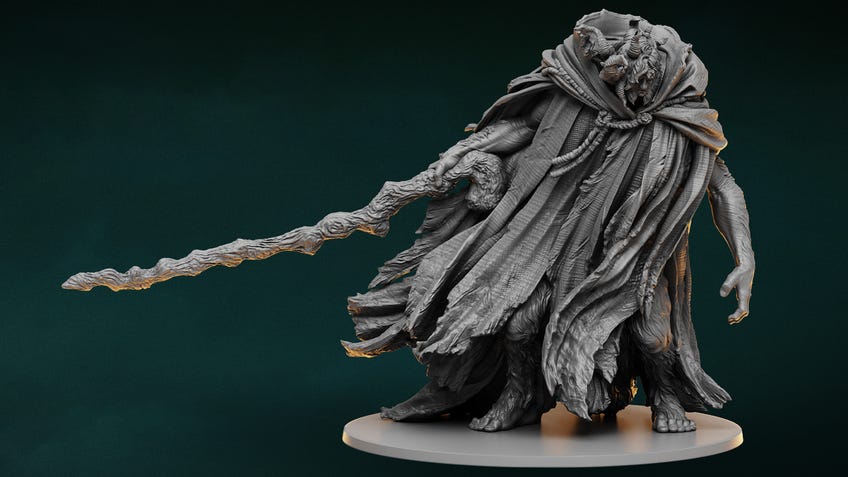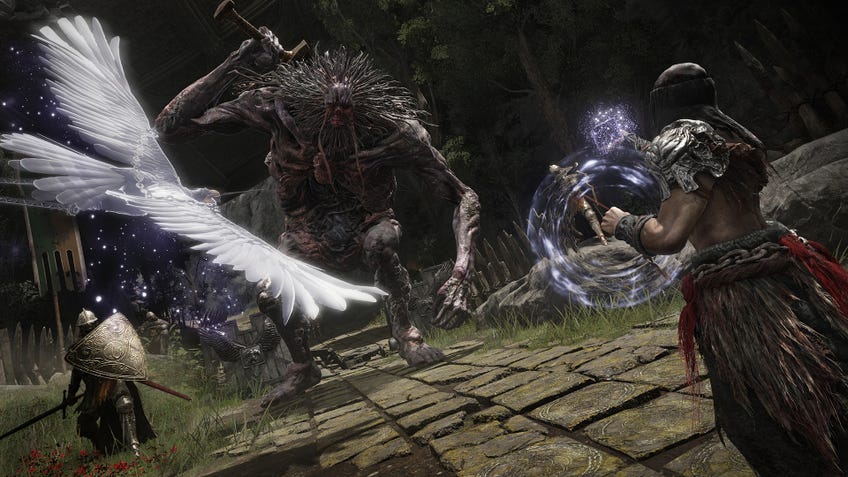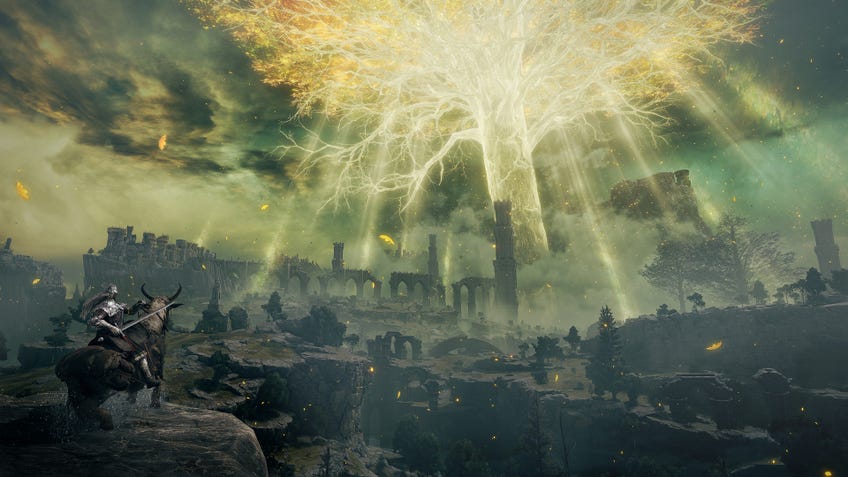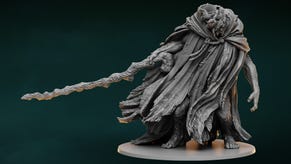Elden Ring board game will have an open-world, non-linear campaign
Designer teases “never say never” to a tabletop RPG.
The Elden Ring board game will recreate the video game’s open world with a non-linear campaign mode, publisher Steamforged has revealed.
Announced last month, Elden Ring: The Board Game looks to adapt From Software’s hugely popular open-world successor to the Dark Souls series, released earlier this year.
Like the video game, the board game will allow players’ characters - known as Tarnished - to travel around regions of the Lands Between as they choose, without needing to follow a set path.
“Rather than creating a truly massive and impractical for the tabletop map, Elden Ring: The Board Game is divided into smaller land masses that can be explored in more digestible scenarios,” lead designer Sherwin Matthews told Dicebreaker. “Individually, these will be explored by placing tiles as the Tarnish traverse the landscape, discovering what awaits them.”

A number of enemies and bosses from the video game - Godrick the Grafted and Margit, the Fell Omen from Elden Ring’s early Stormveil Castle dungeon were both revealed as part of the initial announcement - will stand in the players’ way on their journey to become Elden Lord.
Each encounter will form part of an ongoing campaign as players level up their characters, upgrade stats, acquire new equipment and discover new locations. Matthews said that the Elden Ring board game had been designed primarily as a campaign game, serving as the backbone to the open-world exploration.
“As the campaign progresses, these scenarios can be experienced in an open world capacity - the game isn’t linear, and each scenario will have specific objectives and interactions, which might influence future scenarios and decisions,” the designer explained.
Steamforged previously published Dark Souls: The Board Game, based on the video game of the same name - and the spiritual predecessor to Elden Ring. Matthews said that Elden Ring: The Board Game would similarly differ to Dark Souls in its focus on discovery of the world over purely combat-driven encounters.
“They’re both very different games, using separate engines,” Matthews said. “Given the sprawling landmass in the Elden Ring video game, there’s unsurprisingly a lot more focus on exploration in Elden Ring: The Board Game than in Dark Souls: The Board Game, which largely abstracts that element.”
In place of the dice rolls used to resolve combat in Dark Souls: The Board Game, the Elden Ring board game will drop dice entirely in favour of cards - something Matthews said “better replicate[s] the intimacy of the one-on-one duels that occur in the game with various enemies, as well as scaling up to include multiple foes”.

Players will be able to wield a variety of weapons from the video game, as well as using ashes of war weapon skills and summoning ghostly allies in the form of spirit ashes. Weapons can be upgraded further using smithing stones.
“Elden Ring is a massive game and we absolutely want to do it justice,” Matthews said. “We’ve arrived at something quite unique that really reflects the Elden Ring experience.”
As for whether Steamforged plans to follow the board game, due to launch on Kickstarter in the future, with a tabletop RPG - as it did with Dark Souls: The Roleplaying Game - Matthews didn’t rule it out.
“I’m a big fan of the phrase ‘never say never’,” the designer said. “I’d love to continue exploring Elden Ring in a different format, as we have with Dark Souls: The Card Game, and Dark Souls: The Roleplaying Game - but as of right now, our focus is solely on Elden Ring: The Board Game.”




